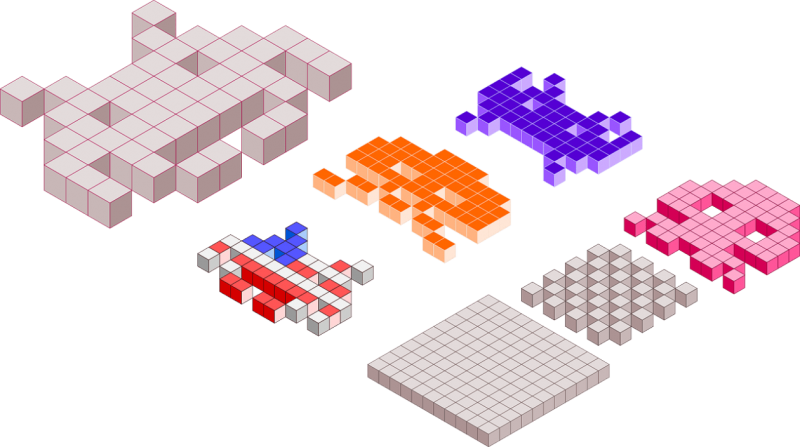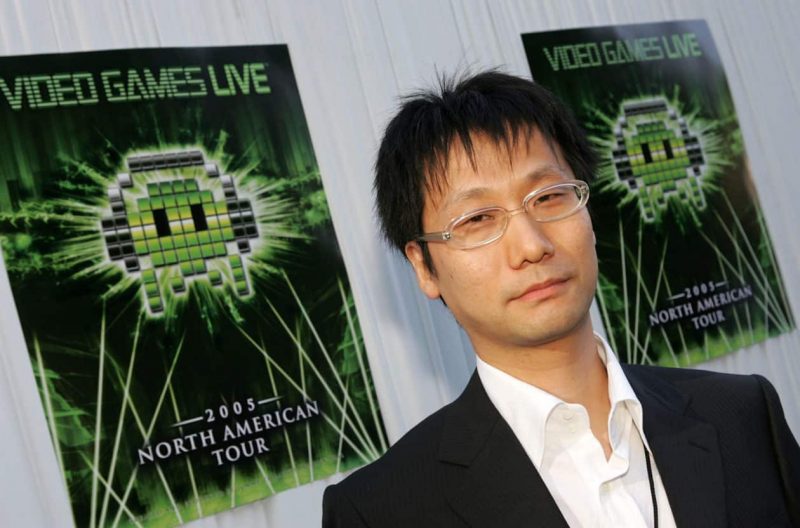In 1978, Tomohiro Nishikado was working away at a new concept which tapped into the Star Wars craze of sci-fi action and adventure. However, the Japanese developer had to stay within the rules set out by the company he worked at, Taito, which stated that no shooting of human targets was allowed.
So, Tomohiro has the inventive idea of using aliens. The notion of the supernatural was ‘in’ at the time and Space Invader’s release pre-empted the hugely popular film Alien, by Ridley Scott in 1979.
Inspired by the resounding success of Star Wars and the insect-like aliens from H.G. Wells’ novel War of the Worlds, he created the iconic pixelated aliens which have become shorthand for gaming as a whole.

Infamous pixelated aliens
It seems like a very long time ago that gaming was played as an arcade game in a bulk cabinet, but this is how Space Invaders captured so many people’s imaginations. The pixelated aliens used became icons of gaming and also a blueprint for other developers imagining their own games.
For example, Shigeru Miyamoto, the Nintendo mastermind behind Super Mario and Donkey Kong, and Hideo Kojima, who created the Metal Gear Solid franchise, have both cited Space Invaders as having a profound impact on how they perceived video games and what they could stir in the player.
Due to the sophistication of gaming today, Space Invaders sounds unremarkably simple. Move a small tank across the screen to shoot down waves of aliens descending from the skies, using blocky barriers to shield yourself from enemy fire. The more levels you completed, the more fiendishly difficult it became.

Hideo Kojima, creator of Metal Gear Solid, stands in front of a poster bearing the Space Invaders alien
But beyond the simple principle, Space Invaders introduced features that hadn’t been thought of before. Such as using music to increase the tension and elevate the player’s experience. This was pioneering in gaming at the time as Dr. Brendan Cassidy, senior lecturer in computer science at the University of Central Lancashire explains, “It was the first arcade game in which music was played in parallel to sound effects, heightening the sense of urgency as aliens relentlessly march towards the player,” he explains. The four-note loop, which gained speed as the player progresses through levels, was simple but extremely effective in eliciting tension and ushering in a new kind of gameplay experience.
It was also the first game to include multiple features, which have become standard in the decades since its release. It was the first title to include enemies which returned fire, and the first to gift players with multiple lives. The ability for players to enter high scores and attempt to beat previous record holders was another innovative introduction which proved enormously popular, and is now a routine aspect of competitive online gaming.
Space Invaders took the world by storm, starting in Japan and spreading globally; and when the game was adapted for the Atari 2600 console in 1980, the popularity grew even further. Four decades on, Space Invaders’ appeal still endures, as Cassidy says, “It’s been remade, reimagined and ported countless times, and has cemented itself as one of gaming’s greatest icons.”
While technological advances have infinitely improved the graphics and plot mechanics of today’s advanced titles in an industry worth close to £90bn, few have tapped into the cultural zeitgeist and blazed a trail quite like it – often imitated, but never bettered.
At
Whitehill & Bordon, we’re proud to say we are in an area that is massively contributing to that same legacy. Situated on the tech corridor, the gaming mecca that is Guildford is right on our doorstep and new technological advances and improvements made everyday make Whitehill & Bordon a very exciting place for the gaming world.
A new hub for tech startups and creatives, Whitehill & Bordon is the most significant town development for 35 years and is a town with one foot in the future.

Source : https://inews.co.uk/news/technology/space-invaders-at-40-the-arcade-classic-game-which-shaped-gaming/





